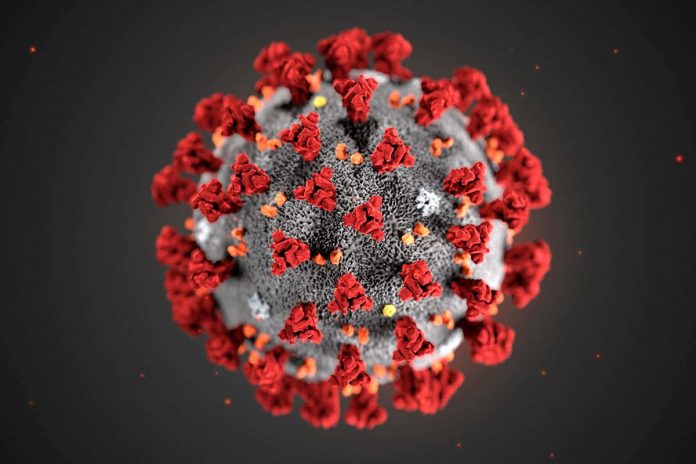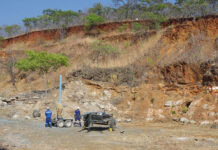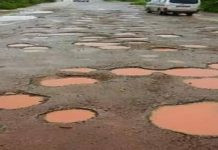
Munyaradzi Doma
“I was on oxygen and drip (intravenous therapy) for 11 days. I really went through a very difficult time and for a moment I thought I was going to die.”
A 35-year-old, Chenai*, a Chitungwiza woman, who survived the COVID-19 virus, said as she shared her ordeal after surviving the deadly novel coronavirus.
The mother of three chose to remain anonymous out of fear of stigma and discrimination.
The near death experience has, however, given the woman a new perspective towards life.
People across the world have been warned to adhere to COVID-19 safety regulations chief among them, avoiding large social gatherings, but stoicism continues to rule.
This is also led this woman to her near demise.
After being invited to a lobola celebration in her neighbourhood, she thought she would never miss it for the world.
Little did she know that this generous invite was one she would live to regret as she was party to a “COVID-19 super-spreader” event?
“I suspect I was infected at the roora celebration that took place this side. We were all in a party mood and no-one was wearing any face masks.
“Social distancing was non-existent. We were of the misapprehension that we were not at any risk of contracting the virus. I was so stupid. Please let’s avoid these gatherings,” she said.
She started feeling sick after three to four days before she was tested.
She developed the virus symptoms and went into self-isolation.
“I would cough a lot and I was so weak such that I could not walk on my own. Even though I had not been tested, I started wearing a mask in the house around the children.
“I stopped sharing utensils and I kept my sanitizer closer too. I steamed three to four times and I would also drink Zumbani three times a day,” she recalled.
The woman tested positive and was admitted at a private clinic for two weeks.
Although she feels much better, recuperating at home, her body still gets weak at times.
Her taste buds were also extremely affected and prefers food marinated with chilli and garlic for taste.
The problems do not end there, her family is battling to cover a US$2 000 medical bill.
“With COVID-19 you don’t really recover 100 percent because for me, the virus brought other medical issues.
“I’m likely to be diabetic, so they have started controlling my diet and they changed one of my BP (hyper-tension) medicines too,” she narrated.
Her advice to Zimbabweans is simple, people should wear face masks – properly, wash or sanitize hands and avoid gatherings – reiterating that anyone can be infected.
The woman is also shared by another survivor from the same town.
Lorraine, is a nurse at one of Zimbabwe’s public health institutions, shares an almost similar story.
However, she contracted the disease while on duty.
At the peak of infections, around mid-January, at least two frontline health workers were contracting the virus.
Lorraine, who has fully recovered from the diseased, still suffers from some chest pains.
This, she said, was common among COVID-19 victims.
“I was told that it will take about a month for me to fully recover. The month is almost over but there are times when I feel really unwell,” she said.
Lorraine was down with COVID-19 for more than a week and a half but didn’t not know what was wrong with her.
She only knew that she had the virus after tests confirmed that she was positive.
Lorraine suffered from general body weakness and pain, a sore throat, diarrhoea, vomiting, kidney pain, cough and headache.
She had to self-medicate, steaming with Zumbani and vapour rub three times a day.
Lorraine also took a concoction of grated garlic, ginger, lemons and honey alternating with Zumbani tea.
She blames herself for failing to carry out necessary health protocols at work.
“I think I got infected at work because we were attending to cases without testing people. People would just come to theatre and we would attend to them.
“But now every patient who is scheduled for surgery is tested first,” she said.
Enock, another survivor who has lived to tell his tale, revealed how he started experiencing malaria symptoms – these include a headache, pain and weakness in joints.
For he had no chest pains or any breathing problems, he never suspected the worst.
For the severe headache, he took some pain killers but nothing changed.
When he finally decided to get tested, he was COVID-19 positive.
“Though the symptoms were not even respiratory, I decided to get tested after I saw that the headache was persistent. I did not get serious like other cases but I guess I was too anxious because I thought I would never recover,” said the 30-year-old father of one.
He said he was quarantined for 10 days at a government institution where he was treated.
Enock was given Azithromycin, Vitamin A, multi-vitamins, zinc sulphate, dexamethasone and paracetamol tablets.
He also argues that complacency was leading to the spread of the diseases.
He suspects he contracted the virus from a relative who visited him.
The relative was being treated for the coronavirus disease.
“We trust too much – relationships and colleagues especially. I suggest we should all treat everyone as infectious. I have a cousin who was coming to my house daily. He was sick including his wife and were on treatment but they never said anything.
“I discovered it later. This is why I’m stressing the need to treat everyone as infectious. He knew his condition yet he never told me. He would come to my house almost every day until I fell ill. Luckily my wife and child were not infected,” he said.
Enock has, unfortunately, been forced to cut ties with his cousin.
Coronavirus disease (COVID-19) is an infectious disease caused by a newly discovered coronavirus.
Most people who fall sick with COVID-19 will experience mild to moderate symptoms and recover without special treatment.
The disease has affected 106 million people leading to 2.3 million deaths across the world.
Zimbabwe has recorded 34 552 confirmed cases of the COVID-19 virus while 1 326 people had succumbed to the disease as on Monday, February 8 this year.
In his State of the Nation Address recently, President Mnangagwa called on Zimbabweans to keep adhering to all safety precautions to curtail the spread of the COVID-19 virus and the World Health Organisation protocols.
He said the COVID-19 strain experienced in the second wave had seen an increase increased number of deaths due to the pandemic.
While many people are hoping that the coronavirus will eventually disappear, the tales shared by survivors indicate the need is to adhere to all safety precautions as directed by health experts.
Without adhering to all safety precautions, then infections will keep on soaring and not all will be lucky to survive the pandemic.
*Not Her Real Name


















